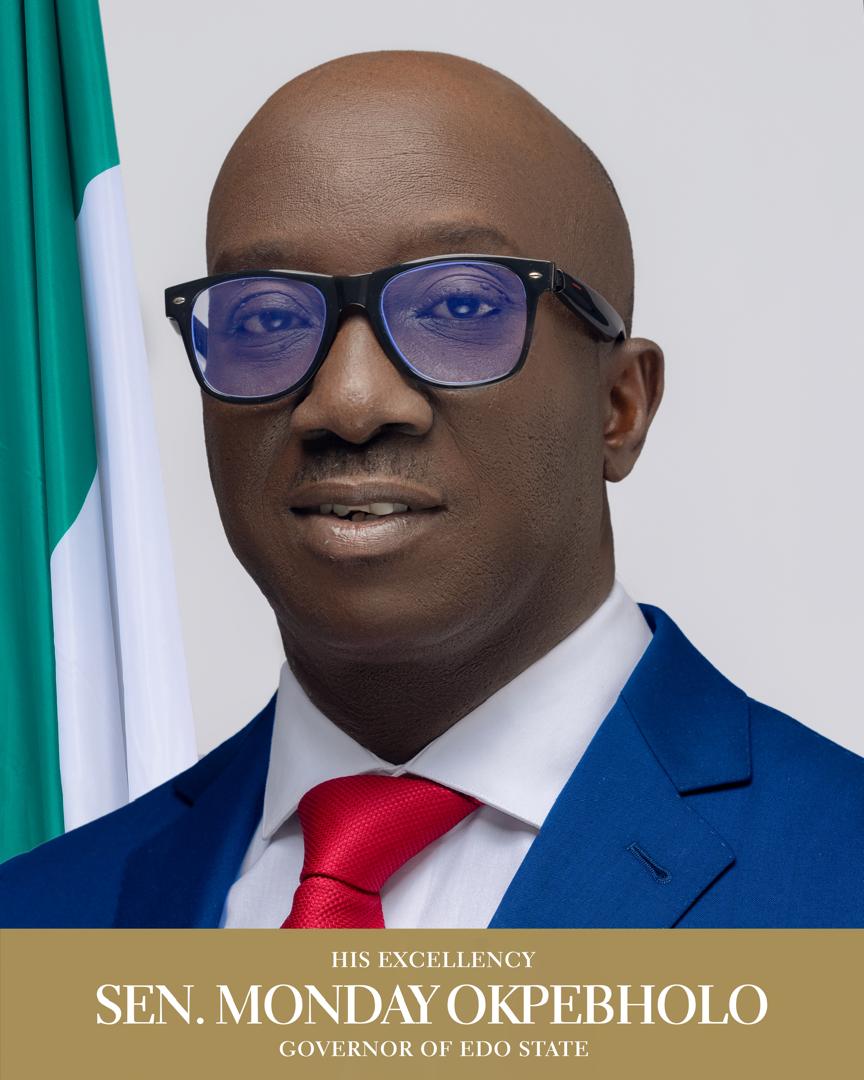Governor Okpebholo Only Demanded Accountability From The Local Governments
By: Godswill Inegbe
On December 2, 2024, Edo State Governor, Senator Monday Okpebholo, made a bold move to uphold transparency and fiscal discipline by instructing all 18 local government chairmen to submit their statements of account within 48 hours. Delivered through his deputy, Dennis Idahosa, during a meeting at the Government House in Benin City, the directive underscored the administration’s determination to ensure that every level of governance adheres to principles of accountability.
This mandate required financial reports covering the period from September 4, 2023, to date, to be submitted to the Assets Verification Committee via the Secretary to the State Government. The urgency of the timeline was not lost on observers, as it reflected the governor’s unwavering commitment to streamlining the financial audit process and fostering a more collaborative relationship between state and local governments.
Promoting Accountability at the Grassroots
Governor Okpebholo’s directive was a response to the long-standing need for financial accountability in local government operations. Local governments, as the tier closest to the people, are instrumental in providing essential services. However, they have often been criticized for lacking transparency and efficiency in fund management.
By demanding these statements of account, the governor is taking a proactive step to identify and address potential mismanagement or irregularities. This initiative aligns with his administration’s broader goal of enforcing compliance with financial regulations and safeguarding public funds from waste or abuse.
Transparency at the local government level is critical for ensuring that funds allocated for grassroots development are utilized effectively. Governor Okpebholo’s insistence on detailed financial reporting aims to bridge gaps in resource management, ensuring that every naira spent contributes to improving the lives of the people.
Strengthening Governance and Policy Implementation
In addition to promoting fiscal accountability, the directive serves a larger purpose: enhancing the efficiency of governance and policy implementation. Accurate financial data is indispensable for making informed decisions, crafting effective policies, and addressing specific challenges within local councils.
By assessing the financial health of local governments, the administration can tailor interventions to strengthen underperforming councils. This ensures equitable development across the state and enhances the overall effectiveness of governance. The governor’s action highlights his commitment to data-driven decision-making and a results-oriented approach to leadership.
Fostering Collaboration and Unity
Governor Okpebholo’s directive was not just about financial discipline; it was also about fostering a culture of collaboration and unity among stakeholders. In his message, conveyed by Deputy Governor Idahosa, he assured the council chairmen of their integral role in the administration’s success. Emphasizing that they are all part of a “family” working toward the state’s progress, the governor encouraged cooperation and mutual trust.
This inclusive approach underscores the importance of unity in governance. By engaging the local government leaders as partners rather than subordinates, Governor Okpebholo has set the tone for a harmonious working relationship. This approach not only strengthens trust but also inspires a shared commitment to achieving developmental goals.
Supporting the Assets Verification Committee
The governor’s directive is also aligned with the objectives of the Assets Verification Committee, a body tasked with ensuring proper accountability for public resources. The committee relies on accurate financial data to carry out its mandate effectively.
The financial statements requested by the governor will provide the committee with the information it needs to verify asset management, curb corruption, and promote efficient resource utilization. This collaboration between the state government and the committee highlights the administration’s comprehensive approach to governance and accountability.
A Leadership Style Balancing Firmness and Diplomacy
Governor Okpebholo’s handling of this directive reflects a leadership style that balances firmness with diplomacy. While his demand for financial transparency is unequivocal, it was communicated respectfully and collaboratively. This approach ensures that local government leaders feel valued and respected while understanding the importance of accountability.
This leadership style fosters a cooperative atmosphere, making it easier to implement policies and achieve shared objectives. By striking this balance, Governor Okpebholo demonstrates his ability to lead decisively while maintaining strong relationships with stakeholders.
Response from Local Government Chairmen
The directive has received an initial positive response from the local government chairmen, led by Newman Ugiagbe, Chairman of Orhionmwon Local Government and head of the Edo State chapter of the Association of Local Governments of Nigeria (ALGON). During a courtesy visit, the chairmen pledged their loyalty to the administration and expressed their readiness to support its policies and programs.
However, no sooner had the Chairmen left than they revolted and chose to ignore the directive. This necessitated the governor asking the Edo State Assembly to look into the matter. This was how the matter came to its present situation.
The Broader Implications of the Directive.
Governor Okpebholo’s directive is more than just a call for financial reports; it is a cornerstone for building a culture of transparency and accountability in Edo State. By emphasizing fiscal discipline, the administration not only strengthens trust among stakeholders but also sets a clear path for effective service delivery and grassroots development.
This initiative sends a powerful message about the governor’s commitment to good governance. It demonstrates that the administration is serious about ensuring that public resources are managed with integrity and used to improve the lives of the people.
Conclusion
Governor Monday Okpebholo’s demand for financial accountability from local government chairmen is a decisive step toward fostering transparency, unity, and efficiency in Edo State’s governance. By combining firmness with diplomacy, the governor has created a framework for collaboration and trust that will benefit Edo people.
Godswill Inegbe is theSpecial Adviser To The Governor on Communication, Strategy and Media Projects.
